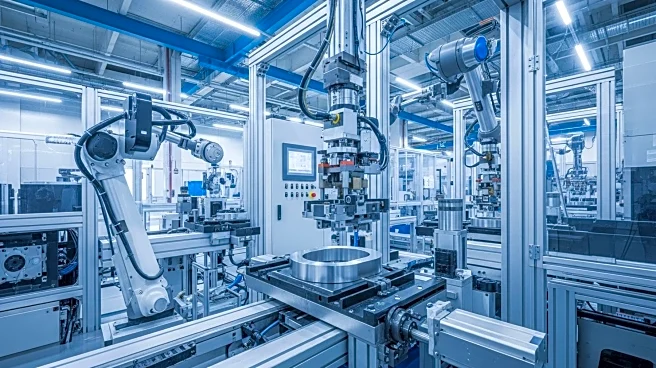What is the story about?
What's Happening?
Neo Performance Materials has opened a new magnet plant in Narva, Estonia, marking Europe's first commercial-scale production facility for magnets made with rare earth elements. The plant is capable of producing magnets for one million electric vehicles and 1,000 wind industry generators annually. This development is significant as it reduces Europe's dependency on China for rare earth elements, which are crucial for efficient electric systems. The plant's location near the EU and NATO's border with Russia adds geopolitical importance, as Estonia seeks to bolster its industrial base and economic resilience.
Why It's Important?
The establishment of Neo's magnet plant in Estonia is a strategic move to enhance Europe's competitiveness in the global market. By producing magnets domestically, Europe can reduce its reliance on Chinese imports, which have been a source of geopolitical tension. The plant supports the EU's goals of achieving energy efficiency and sustainability, particularly in the automotive and wind industries. Additionally, the facility is expected to revitalize Narva, a city with a struggling economy, by creating jobs and attracting investment. This development also strengthens Estonia's position within the EU and NATO, providing a buffer against potential Russian aggression.
What's Next?
Neo Performance Materials plans to expand its production capacity and explore further opportunities in the European market. The plant's success could encourage other companies to invest in similar facilities, boosting Europe's industrial capabilities. As demand for electric vehicles and renewable energy solutions grows, the plant's output will play a crucial role in meeting these needs. Estonia may also leverage this development to enhance its geopolitical standing and economic stability, potentially attracting more foreign investment.
Beyond the Headlines
The opening of the magnet plant in Narva highlights the intersection of industry, climate, and geopolitics in Europe. It underscores the importance of diversifying supply chains and reducing dependency on single-source suppliers, particularly in critical sectors like energy and technology. The plant's location near the Russian border adds a layer of geopolitical complexity, as Estonia navigates its relationship with Russia while strengthening ties with the EU and NATO.
















